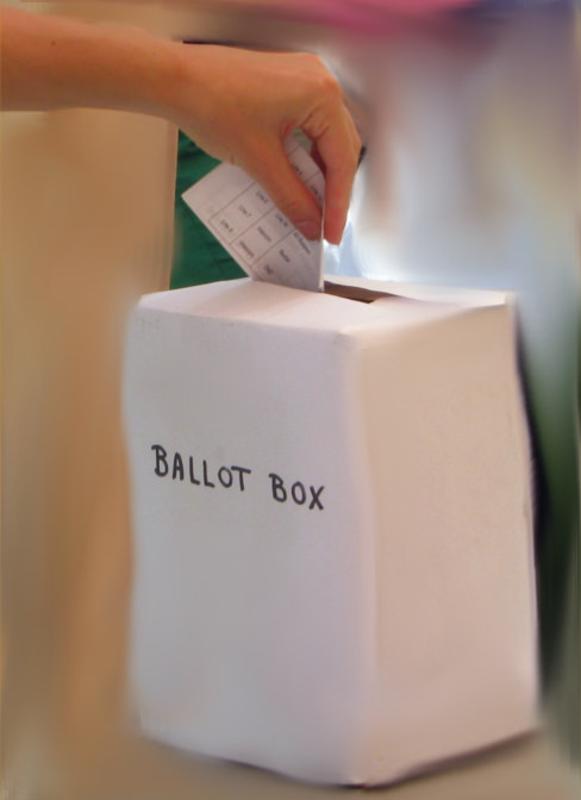British Columbia’s NDP-Green coalition government has announced a new referendum on voting reform, which is currently scheduled to take place in fall of 2018. Making an effort to scrap B.C.’s current first-past-the-post voting (FPTP) system was one of the conditions the Green party had for supporting the NDP in the new coalition government, and the NDP is following through on that promise.
It is not yet clear exactly what system will be proposed to replace FPTP, but it will certainly involve some method of proportional representation. There have already been two referendums in B.C. to change the voting system, in 2005 and 2009. Both of them failed to pass. However, the 2018 referendum will have different rules. The prior referendums required at least 60 per cent of votes in favour province-wide, and at least 50 per cent approval in 60 per cent of ridings. The 2005 vote fell just short of the requirements, while in 2009 it failed by a larger margin. However, the 2018 referendum will only require 50 per cent plus one in order to pass.
A few commentators — such as columnist Bill Tieleman, and BC Liberal Party leadership candidate Sam Sullivan — have balked at the proposal, claiming that it will lead to an era of perpetual minority governments, allow fringe parties disproportionate power, and take away local representation, especially for rural ridings.
If proportional representation leads to endless minority governments, I say “Good, let’s have them.” Personally, I am quite satisfied with the current arrangement, and not only because of my political leanings. Without a majority in the legislature, the governing party cannot force any policies that are too outrageous, lest the other parties strike them down. It ensures a degree of compromise and cooperation that makes for more sensible decision-making, that is in more voters’ interests. Some might view this as a bad thing, causing parties to sacrifice their ideals, but I would point you towards the United States to see what happens when a political system becomes too stable and polarized. Too much stability is a bad thing, and I would prefer a government where all of the parties are kept on their toes, and are forced to take other factions into account.
If this referendum passes, it will completely change the political map of the province. There will no longer be safe seats, or non-competitive ridings, the parties will not have the luxury of playing favourites, and pitting different regions of the province against one another to gain the most votes in their traditional strongholds, and focus their efforts disproportionately on a handful of swing districts. This will force the candidates to appeal to all British Columbians, since the minority voters who are swept under the rug in our FPTP system will become a factor. In truth, nobody can predict how the new arrangement will favour certain parties, and that scares some people.
Losing local representation is one area in which I concede that the critics may have a point. Under the current rules, MLAs must reside in the riding they represent, which ensures (in theory, at least) that representatives will understand, and advocate for, the needs and concerns of those they represent. Personally, I would much prefer to be represented in Parliament by a local who knows the attitudes and challenges of their constituents. Proportional representation makes this harder to do. One option is mixed member proportional, in which the winning party is given the amount of ridings they won the most votes in corresponding to the percentage of the popular vote won. If the winning party won fewer ridings than the popular vote percentage ought to have given them, their numbers are filled out with “general” MPs who represent no specific district. It is a complicated solution, and an incomplete one, but there are options; even if we do lose some local perspective from our politicians, I think respecting the wishes of the voting public as a whole is worth it.
Politics aside, I am of the opinion that proportional representation is simply more fair. In the last provincial election, the Green party won 17 per cent of the popular vote, but only got three seats in Parliament, as opposed to 17 per cent of them, which would be 14 or 15 seats (depending on how you round it) in our 87-seat legislature. The reason for this discrepancy is that, under the FPTP system, we count ridings, not votes. The determining factor in deciding whether a candidate “wins” a riding is the greatest number of votes cast for that candidate. If you did not vote for the party that won in your riding, then your vote is essentially thrown out, and not counted. Also, if there are more than two candidates (as there often are in Canada), then the winning party may have less than 50 per cent of the popular vote, meaning that most people voted against them, but they still won. This doesn’t sound much like democracy to me. It is high time to put an end to false majorities, and shutting minority voices out of political representation. I hope that this new referendum passes, and I suspect it will this time. Hopefully then we’ll see some real politics in B.C.


